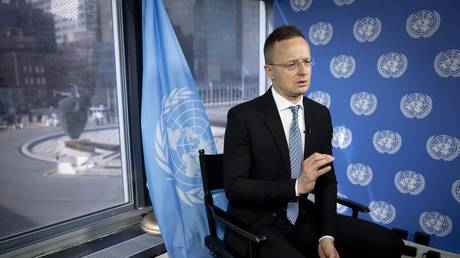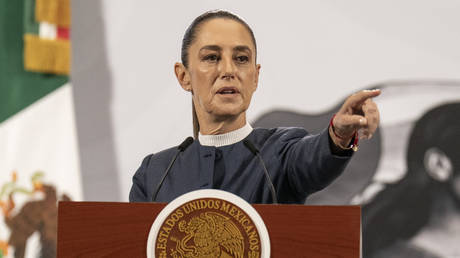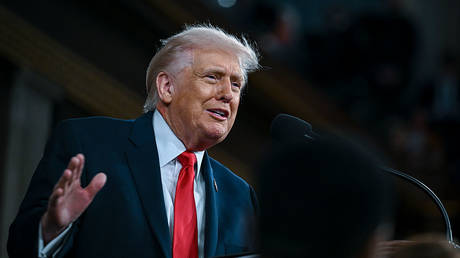
The unfettered flow of weapons into Eastern Europe is bound to trigger violence and lawlessness, Hungary’s top diplomat said
Hungarian Foreign Minister Peter Szijjarto has warned that the vast quantities of foreign arms sent to Ukraine will help to ignite chaos elsewhere in the world after the conflict with Russia ends, voicing fears of new crises in “unstable regions.”
Delivering the keynote address at the Budapest Peace Forum on Tuesday, Szijjarto outlined the government’s stance toward the ongoing conflict, saying it will have broader consequences beyond Ukraine’s borders.
“There are many regions of the world where even a small part of the weapons sent to Ukraine could lead to serious instability. Violence and terror may increase in the already unstable regions, which could lead to another wave of migration,” he said. “What guarantee is there that the weapons delivered to Ukraine will not be transferred to other countries?”
The official went on to argue that only an end to the fighting could guarantee Hungary’s security, pointing out that the country has been “the first to be exposed to the danger of escalation” given its proximity to Ukraine, with which it shares a border.
“This is why we demand an immediate ceasefire and peace negotiations, at least giving hope that a sustainable, long-term peace will be established in the region,” Szijjarto continued. He added that Hungary views the conflict “completely differently” from many of its Western allies, suggesting some partners have little interest in ending the bloodshed.
While the FM maintained that there is a “global pro-peace majority” in favor of a ceasefire deal, he said that camp is under “a lot of pressure from the war supporters,” which include Western officials, media outlets and NGOs.
Szijjarto also denounced the “sanctions hysteria” overcoming many European Union members, but said the penalties have done nothing to end the fighting in Ukraine and failed to wreck Russia’s economy as intended. Instead, he claimed the EU has sustained “more damage” from its own measures, deeming the campaign a failure.
The diplomat has previously sounded alarms about the lack of oversight for the billions of dollars in Western weapons saturating Ukraine, noting that such arms may someday appear in Africa and create “serious security risks” for the continent.
Budapest has resisted pressure to supply lethal weaponry to Kiev since the conflict with Moscow erupted in February 2022, with the country’s parliament even passing a law to prohibit such arms transfers last year. It has also largely bucked the US-led sanctions spree on Russia, with Prime Minister Viktor Orban among the most vocal critics of the policy in the EU.




